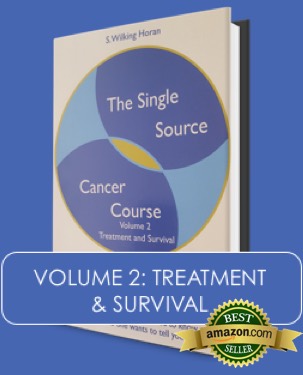
Hello Everyone and Welcome to #WELLNESS WEDNESDAY. March has been a very busy month. And, we’ve devoted a lot of time to celebrating Women’s History Month and some of the amazing Women whose contributions helped shape Healthcare as we know it today.
But, March also is COLON CANCER AWARENESS MONTH. As many of you know, this was the first of three cancers with which I was diagnosed. My diagnosis came early in my life and the cancer was hereditary and aggressive. Here I was, a healthy, slim, athletic, non-smoking vegetarian – and I was diagnosed with colon cancer.
I was caught off-guard – totally by surprise – and I don’t want anyone else to be in that position. So, in this last week of March, I’m sharing the Knowledge and Information everyone needs to protect themselves from colon cancer – also referred to as colorectal cancer.
Here we go with the SEVEN MAJOR RISK FACTORS for COLON CANCER:
- AGE: As with most cancers, our risk for developing this disease typically increases as we grow older. Unless the cancer is hereditary, colon cancer is found most often in individuals over the age of 50.
- GENDER: This cancer is the third most common among both women and men. Yet, women have a higher risk for developing colon cancer. Men on the other hand, have a greater risk for developing cancer of the rectum.
- LIFESTYLE: Tobacco use, alcohol abuse, lack of exercise and excess weight contribute to one’s risk.
- GEOGRAPHY & RACE: The highest rates for this cancer are found in the industrialized nations of the world. In contrast, the lowest rates are found in South America, Africa and Asia. Moreover, colon cancer is most common in African-American women and men – and least common in Hispanics, Asian-Americans, Native Alaskans and Native Americans.
- DIABETES: Individuals who have diabetes have an increased risk of 30 to 40 percent for developing colon cancer.
- PERSONAL HISTORY: Women who have a history of breast, ovarian or uterine cancer share a higher risk for colon cancer. Also, women and men who have a history of colon polyps, ulcerative colitis or Crohn’s disease have an increased risk for this cancer.
- FAMILY HISTORY: Again, heredity is a powerful force in determining who is at risk for developing this disease. Anyone who has a first-degree relative –a parent, sibling or child – who has had colon cancer also has an increased risk for the disease. Anyone with a family history of hereditary non-polyposis colon cancer (HNPCC), MYH-associated polyposis or familial adenomatous polyposis also has an increased risk for colon cancer.
And, there we have our SEVEN MAJOR RISK FACTORS FOR COLON CANCER. Of course, my major risk was the fact that the disease ran in my family. And, I can’t stress enough the importance of finding out everything you can about your family history. Not just for colon cancer, but for all cancers and many other diseases.
And, if you should find that this disease runs in your family, consult with your doctor about your options. When you have an increased risk, regular screening procedures will probably begin at a younger age than most AND they probably will be conducted more frequently. This is because genetically influenced cancers typically occur at a younger age in one’s life.
Remember, half the battle is understanding the risks of a particular cancer. Once we know the major risks are, we can determine our personal risk. And from there, we can develop a preventative strategy to protect our health and warn of potential trouble.
Also, remember our first defense against any cancer is prevention. And in order to help prevent cancer, we need to properly screen for cancer. The really good news here is that with proper screening, colon cancer is one cancer that literally can be prevented with the help of one screening procedure in particular – the COLONOSCOPY.
I hope you’ve found this Blog helpful and informative. Please take this information with you into the rest of the year. Talk to your primary care physician. Schedule your screening procedures. Be PRO-ACTIVE! Do everything you can to protect yourself – and your loved ones.
Once again, thanks for joining me everyone. We’ll see you here again in April when we’ll be discussing more HEALTH and WELLNESS issues essential for living a POSITIVE and PRODUCTIVE life.
Until then, stay in GOOD HEALTH and . . .
TAKE THE COURSE AND TAKE CHARGE!
________________________________________________________________
TIME FOR REVIEW:
SPRING CLEANING – THE INCREDIBLE COLONOSCOPY. Please read it here: https://susanwilkinghoran.com/spring-cleaning-the-incredible-colonoscopy/
THE SINGLE SOURCE CANCER COURSE, Volume 1, Chapter 11: COLORECTAL CANCER



I worked for the Cancer Services Program at our county health department for almost 8 years and colon cancer was one of our priorities. Very informative post!
Thanks Susan for sharing such important information about colon cancer. You are such a powerful advocate!